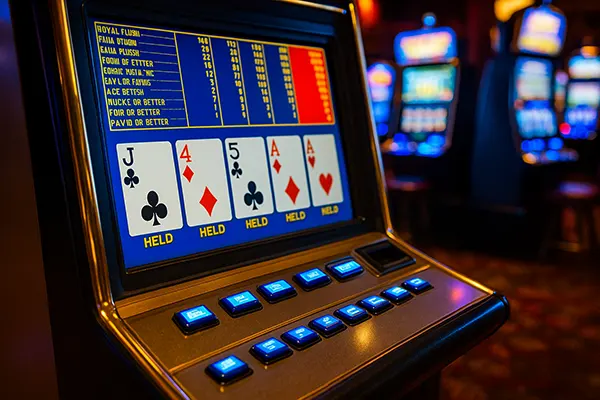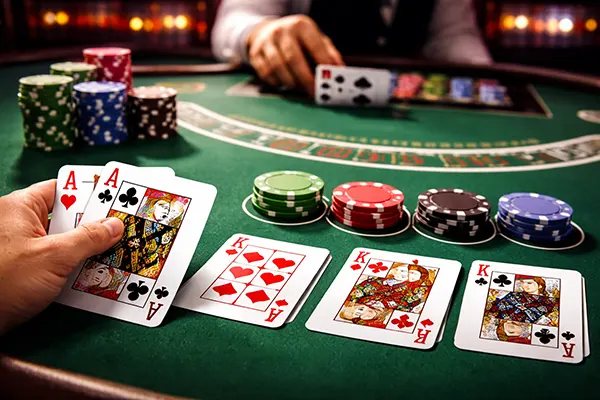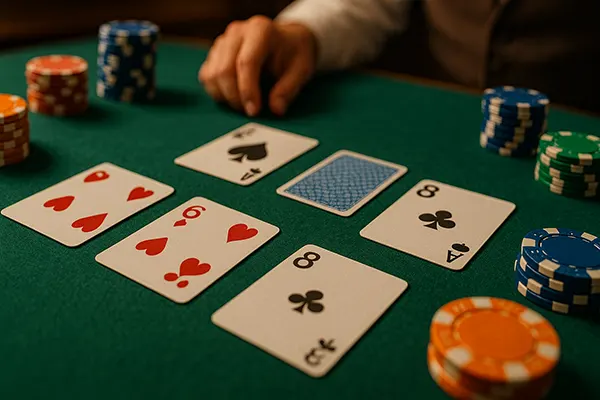
Video Poker Mini-Tournaments: Approaches, Strategies, and the Path to a Jackpot
Video poker in the mini-tournament format has become one of the most engaging competitive features available to players in 2025. This format blends skill-based decision-making with short, timed sessions, allowing participants to compete for ranking-based payouts. Unlike traditional solo play, mini-tournaments emphasise consistency, speed, and strategic discipline. Below is an in-depth guide designed to help players understand how modern mini-tournaments work, how strategies differ from regular video poker, and which approaches deliver the strongest long-term results.
How Modern Mini-Tournaments Are Structured in 2025
Mini-tournaments in video poker typically last between three and five minutes, offering a fixed number of hands or a timed countdown. Each participant starts with identical credit amounts and competes on the same paytable, ensuring fairness. Rankings depend on the total credits accumulated by the end of the session, with prizes distributed to the top players.
Most modern operators use widely recognised variations such as Jacks or Better, Deuces Wild, or Bonus Poker. The choice of variation affects both volatility and achievable scores, making paytable awareness an essential element. The rise of real-time leaderboards has also transformed the pace of play, rewarding players who can make decisions quickly without sacrificing accuracy.
In 2025, some mini-tournaments include optional buy-ins, while others remain free-to-enter events with modest prize pools. The growing popularity of rapid-cycle competitions has encouraged providers to introduce progressive formats, where accumulated tournament fees contribute to a shared prize fund. This model creates a dynamic environment in which top-ranking positions can deliver substantial rewards.
Key Competitive Advantages of the Mini-Tournament Format
The mini-tournament format reduces the influence of long-term variance, focusing on short, intense periods of play. Since every participant receives an identical starting position, the outcome largely depends on decision-quality rather than external factors. This increases the value of optimal strategy and improves accessibility for players who enjoy a skill-based challenge.
The short duration also suits those who prefer structured, predictable gameplay sessions. A session does not require large bankrolls, as the initial credit base is fixed. As a result, players can take part without committing large sums, while still having the opportunity to compete for leaderboard rewards.
Finally, mini-tournaments support consistent practice of fundamental video poker skills. Timed decision-making encourages the development of muscle memory for optimal card-holding patterns. This skill carries over into regular video poker sessions, improving long-term performance even outside tournament play.
Core Strategies for Strong Tournament Performance
Success in a mini-tournament requires a different mindset compared to long-form video poker. Since the session window is brief, players must balance accuracy with rapid execution. The goal is to achieve the highest possible score within the limited timeframe, placing emphasis on high-value hands while maintaining efficiency.
One essential strategy involves prioritising hands that offer strong scoring potential. For example, while Jacks or Better rewards consistency, Bonus Poker and Double Bonus variants allow more aggressive strategies due to higher payouts for four-of-a-kind hands. Identifying which tournaments suit your style improves your competitive edge.
Another key consideration is familiarity with optimal-play charts. These charts outline the mathematically correct card-holding combinations for every possible hand. Tournament players often memorise these patterns to avoid hesitation. Reducing hesitation increases the number of hands played, boosting the chance of hitting a premium combination during the session.
Maximising Speed Without Increasing Mistakes
Although speed is an advantage, accuracy remains essential. A single incorrect decision can significantly reduce your score, especially in variants with higher volatility. Practising optimal play through training tools can help players maintain accuracy even under time pressure.
Most tournaments reward those who strike a balance between quick execution and strong decision-making. A recommended method is to develop a rhythm: review the initial hand, identify the pattern instantly, and execute the hold with minimal delay. Over time, this rhythm becomes instinctive.
To maintain consistency, players often limit experimental moves during competitive rounds. While unconventional plays may occasionally produce favourable outcomes, they typically reduce your expected value. Maintaining discipline is the foundation of long-term competitive success.

The Jackpot Factor: Understanding the Real Odds
In some mini-tournaments, the top award may include a jackpot pool funded by entry fees or accumulated contributions. These jackpots are not progressive in the traditional sense and are instead tied to tournament performance. Rankings determine eligibility, meaning a player must outperform competitors rather than hit a specific hand.
In rarer cases, special mini-tournaments include a bonus award for achieving a premium hand, such as a Royal Flush. While this is a valuable feature, the statistical likelihood remains consistent with standard video poker odds. For example, the probability of hitting a Royal Flush remains approximately 1 in 40,000 to 1 in 42,000 hands, depending on the variant. Since mini-tournaments involve far fewer hands, jackpot-triggering events based on premium combinations are uncommon.
For players targeting jackpot-based mini-tournaments, success relies primarily on maximising the number of hands played. More hands increase the chance of hitting high-value combinations. However, strategic consistency still delivers the strongest results, as reliably achieving mid-tier scoring hands can elevate your leaderboard position even without jackpot-level outcomes.
Evaluating Your Chances and Setting Realistic Expectations
Understanding probabilities is essential for maintaining realistic expectations. While jackpots can offer significant rewards, they should be viewed as bonus opportunities rather than the primary goal. Focusing on consistent scoring improves your ranking regardless of whether a jackpot is triggered.
Players can enhance their results by selecting tournament types that align with their skillset. For example, low-volatility variants may suit those who favour consistent incremental gains, while high-volatility variants may suit those willing to aim for premium combinations.
Regular participation also contributes to overall improvement. Mini-tournaments provide immediate feedback, allowing players to refine their strategies, track performance trends, and adjust their approach over time. This incremental progression strengthens both competitive results and broader video poker proficiency.
The most popular articles
-
 Shuffle machines and continuous shuffling ...
Shuffle machines and continuous shuffling ...Blackjack looks like a simple game of 21, but what happens before …
-
 Blackjack Side Bets: When Extra Wagers Mak...
Blackjack Side Bets: When Extra Wagers Mak...Blackjack side bets sit in a strange space: they look like harmless …
-
 Rare Blackjack Variants and Their Practica...
Rare Blackjack Variants and Their Practica...Blackjack has evolved into a broad family of formats, many of which …
